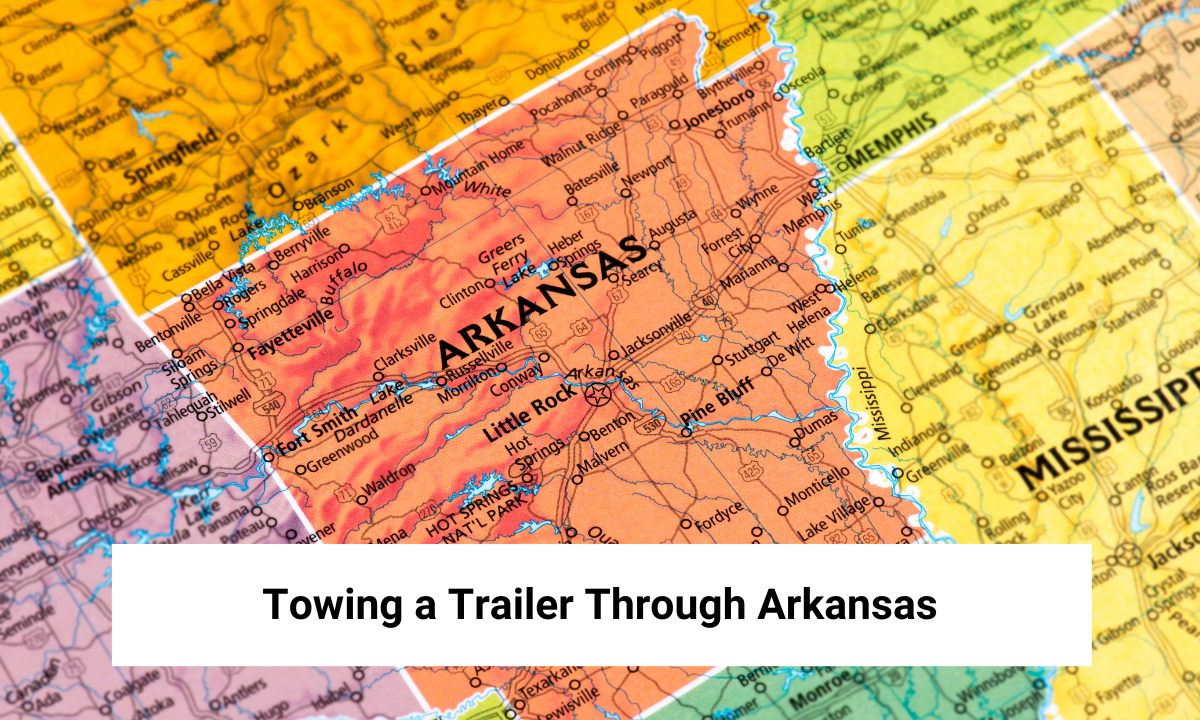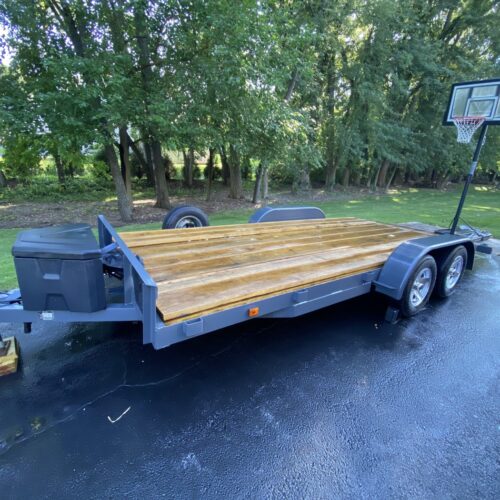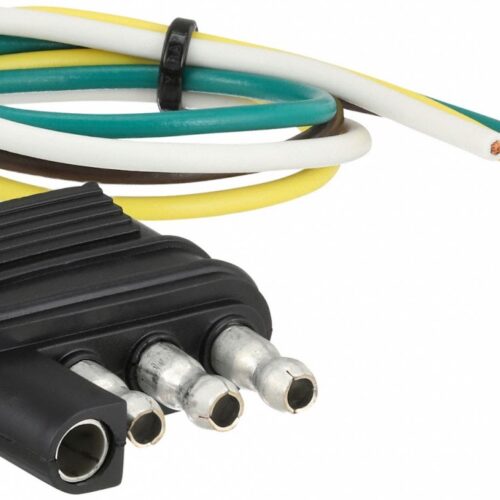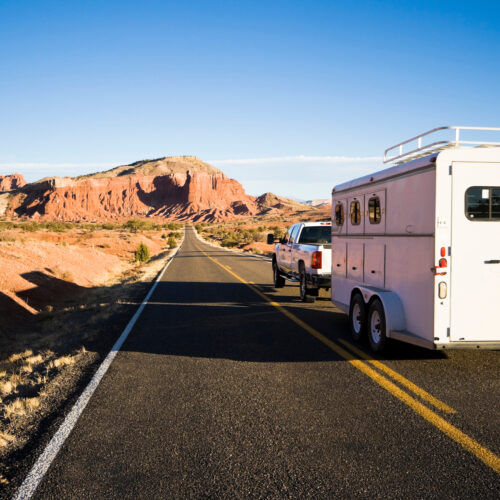When towing a trailer through Arkansas, it’s crucial to understand the state’s specific laws and regulations. Whether you’re planning a cross-country trip or just passing through, following these rules will ensure a safe and legal journey.

1. Maximum Trailer Length
In Arkansas, the maximum allowable length for a trailer, including any load that extends beyond the trailer, is 53 feet. This length restriction is crucial for drivers towing large or multiple trailers, as exceeding it can result in fines or being required to make alternate travel arrangements.
2. Width and Height Restrictions
The maximum width for trailers in Arkansas is 8 feet, 6 inches. The maximum height is 13 feet, 6 inches. These dimensions ensure that trailers can safely navigate through tunnels, bridges, and other infrastructure without causing damage or posing a hazard.
3. Weight Limits
Arkansas enforces specific weight limits for vehicles towing trailers. The maximum weight allowed on any single axle is 20,000 pounds, while the total weight limit for a vehicle and trailer combination must not exceed 80,000 pounds. It’s important to weigh your loaded trailer before hitting the road to ensure compliance with these regulations.
4. Speed Limits
When towing a trailer in Arkansas, the speed limit is generally 55 mph on most highways unless otherwise posted. However, drivers should always follow posted speed limits and adjust their speed based on road conditions, traffic, and weather to maintain safe control over their vehicle and trailer.
5. Trailer Brakes
Arkansas law requires that every new trailer or semitrailer weighing at least 1,500 pounds be equipped with brakes on all wheels. These brakes must be in good working order and capable of stopping the trailer within a safe distance. Additionally, trailers with a gross weight of more than 3,000 pounds must have a breakaway system that automatically applies the brakes if the trailer becomes disconnected from the towing vehicle.
6. Safety Chains
Safety chains are mandatory in Arkansas when towing a trailer. These chains must be strong enough to prevent the trailer from separating from the towing vehicle in the event of a hitch failure. They should be crossed under the tongue of the trailer to help control the trailer’s direction if it becomes disconnected.
7. Lighting Requirements
All trailers towed in Arkansas must have functioning taillights, brake lights, and turn signals. Additionally, trailers over 80 inches wide, 30 feet long, or 10,000 pounds GVWR must have clearance lights and reflectors. These lights and reflectors help ensure that your trailer is visible to other drivers, especially at night or in low-visibility conditions.
8. Mirror Requirements
When towing a trailer, your vehicle must be equipped with mirrors that allow you to see at least 200 feet behind you. This is crucial for maintaining awareness of other vehicles on the road and ensuring safe lane changes and turns.
9. Double Towing Restrictions
Arkansas does not permit double towing (one vehicle towing two trailers) for non-commercial vehicles. This means that if you’re considering towing more than one trailer, you’ll need to make other arrangements or obtain special permits if you’re a commercial driver.
10. Special Permits for Unregistered Towed Vehicles
If the vehicle you’re towing is not registered, Arkansas law requires you to obtain a special permit. This permit is necessary to ensure that the towed vehicle complies with state regulations, and it typically involves paying a fee and providing specific information about the vehicle and its intended use.
11. Permits for Oversized Loads
If your trailer exceeds the legal size or weight limits in Arkansas, you’ll need to obtain an oversized load permit. These permits specify the routes you can take and any special conditions you must follow, such as escort vehicles or restricted travel times.
12. Sufficient Connection Strength
The connection between the towing vehicle and the trailer must be sufficiently strong to pull all the weight being towed. Ensuring a strong connection is vital for safety, preventing accidents caused by trailer detachment or instability while driving.
Conclusion
Towing a trailer through Arkansas requires careful attention to the state’s specific laws and regulations. By adhering to these guidelines, you can ensure a safe and legal journey through the Natural State. Before hitting the road, double-check your trailer’s dimensions, weight, and equipment to avoid any legal issues and keep your trip running smoothly.
Safe travels!




